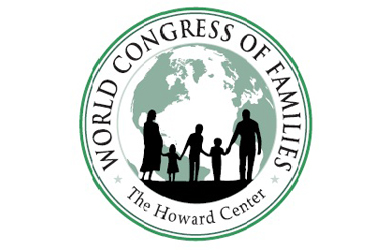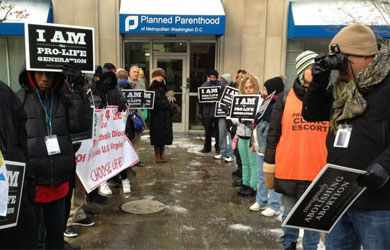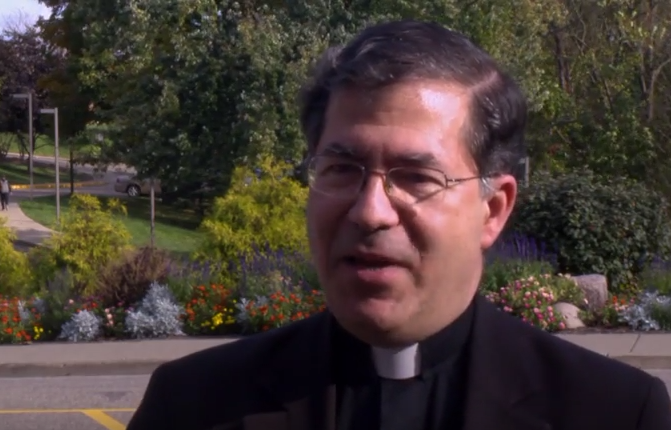The first day of the World Congress of Families summit in Salt Lake City was focused on restricting access to abortion — the program described the day’s theme as “the value of life in all its stages and conditions.”
During one anti-abortion panel, Charmaine Yoest of Americans United for Life — which Miranda once described as a sort of ALEC of the anti-choice movement — celebrated the movement’s recent successes and mapped out a cultural and legal strategy to overturn Roe v. Wade, a strategy grounded in portraying abortion as harmful to women and the pro-life movement as pro-women.
Yoest told the audience to be encouraged, citing a graph from the pro-choice Guttmacher Institute showing that “more abortion restrictions have been enacted since the tidal wave election of 2010 than were enacted in the entire previous decade.” Said Yoest, “I’m really proud of this progress, because it comes from a deliberate strategy that we have enacted as a movement to concentrate on state legislatures.”
Yoest said after the 1983 failure to pass a constitutional amendment in Congress, activists convened their own congress and strategized.
“We came up with a strategy and emerged with a plan: focus on the statehouses and test the limits of Roe v. Wade. The story of the next several decades is one of trench warfare and gaining ground under the radar.”
This summer, she said, the Planned Parenthood videos have provided an “earthquake” which gives anti-abortion movement an opportunity to move forward strategically. [See PFAW’s report on the anti-Planned Parenthood attacks.] The legal strategy is aimed at Supreme Court Justice Anthony Kennedy’s writing that overturning Roe would come with a “certain cost” to women who rely on it. “As pro-lifers, we need to understand that that’s the way he thinks, and his fellow justices on the court,” said Yoest. “But they are ignoring that there is a certain cost to the culture of death.”
Yoest said abortion brings women grief and dramatically increases a woman’s suicide risk. “What an Alice in Wonderland world that we live in where the defenders of so-called women’s health are the promoters of abortion. Let’s call them abortion harm deniers.”
Yoest cited Ruth Bader Ginsburg writing in dissent in Gonzales v. Carhart that “women cannot enjoy equal citizenship status” without access to abortion. And she quoted a feminist author telling women who have had abortion that she hopes they will begin to know their own power.
Ladies and gentlemen, our strategy for the next decade must engage this debate. Abortion for women is not power; it is poverty….
This is our way forward. We must engage a mother-child strategy. The mother-child strategy is rooted in a very careful study of the Supreme Court’s abortion jurisprudence. The court has told us pretty clearly what they think about abortion. Going back again to Planned Parenthood v. Casey, they told us that the state has two areas of legitimate interest: one is protecting the health of the woman and two is protecting the life of the fetus that, according to them, may become a child. Anything that we bring before two courts – the court of public opinion and the Supreme Court — must engage both of these elements, both the mother and the child.
We must keep coming back to what we know to be the truth: pro-life is pro-woman.
Yoest paraphrased a saying by G. K. Chesterton — seemingly the most quoted conservative at the conference — saying that fairy tales are “more than true,” not because they tell us dragons are true, but because they tell us dragons can be beaten. “The culture of death,” she concluded,” is a dragon that must be beaten.”








